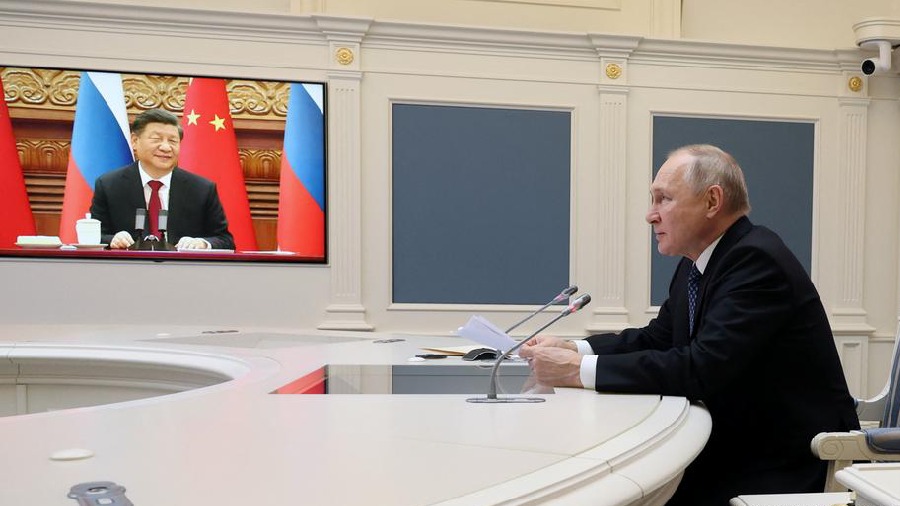When China’s top leader, Xi Jinping, and President Vladimir V. Putin of Russia declared a “no limits” partnership 10 months ago, the pair projected an aura of strength in a direct challenge to the US and the West.
As the two leaders met again on Friday via video, they found themselves in positions of weakness, encumbered by geopolitical and economic threats to their informal authoritarian alliance. Both now have little room to manoeuvre, making the relationship all the more important, albeit also a lot more complicated.
Since Russia’s invasion of Ukraine, Putin has been isolated and highly dependent on China to maintain a semblance of diplomatic and financial stability. His needs have intensified in recent months as the Kremlin has suffered setbacks on the battlefield in a grinding war that has killed thousands of civilians and left Russia’s economy vulnerable.
This month, Xi has seen his much-touted pandemic strategy unravel and Covid cases explode, marring the image he wants to present to the world as the leader of a superior political system. With the current crisis, he can neither fully throw his weight behind Putin and risk sanctions, nor abandon him and risk losing a key geopolitical ally to counter the West.
They betrayed little shakiness in their situations on Friday, pointing in public statements to beefier bilateral trade and growing military cooperation.
In a seeming nod to the strains, Xi acknowledged the “complicated and quite controversial international situation” but said China was ready to improve “strategic cooperation” with Russia, according to a broadcast about the meeting on Russian state television.
Putin used the call on Friday to reaffirm Russia’s ties with China, calling them “a model of cooperation between major powers in the 21st century”, according to a readout by the Kremlin. He invited Xi to visit Moscow in the spring and suggested the two countries could overcome the “unfavourable external situation” together.
“We share the same views on the causes, course and logic of the ongoing transformation of the global geopolitical landscape, in the face of unprecedented pressure and provocations from the West,” Putin said.
The two leaders vowed to deepen their ties. Xi called for China and Russia to “provide each other with opportunities for development,” while Putin aimed to “strengthen cooperation between Russian and Chinese forces”. “Military and military-technical cooperation occupy a special place in our relations, in our ties,” said Putin.
“It facilitates the security of our countries and supports stability in key regions.”
Since China is loath to violate sanctions, western officials say Russia has turned to two other friendly countries — Iran and North Korea — for emergency deals to try to address its shortfall of arms and ammunition. But China’s partnership is important for the broader symbolism of Moscow helping to lead an anti-western front — a key propaganda trope for Putin, who often rails against a western “golden billion” purportedly trying to dominate and exploit the rest of the world’s population.
“The West is trying to pressure with all its strength Beijing and the head of the People’s Republic of China personally, demanding they turn away from Moscow and Putin,” the marquee weekly news show on Russian state television, Vesti Nedeli, declared last Sunday. “But Beijing’s position is unchanged.”
Their propaganda on Ukraine often aligns, deriding the US for pushing Russia into war and taking aim at the more muscular posture of Nato.
“The US is making all efforts to cheer Ukraine on so it can continue its conflict with Russia,” China’s state-owned Global Times wrote in a recent commentary.
“Washington hopes to use the war to completely crush Moscow, including making the latter lose its moral position within the international community.”
New York Times News Service

